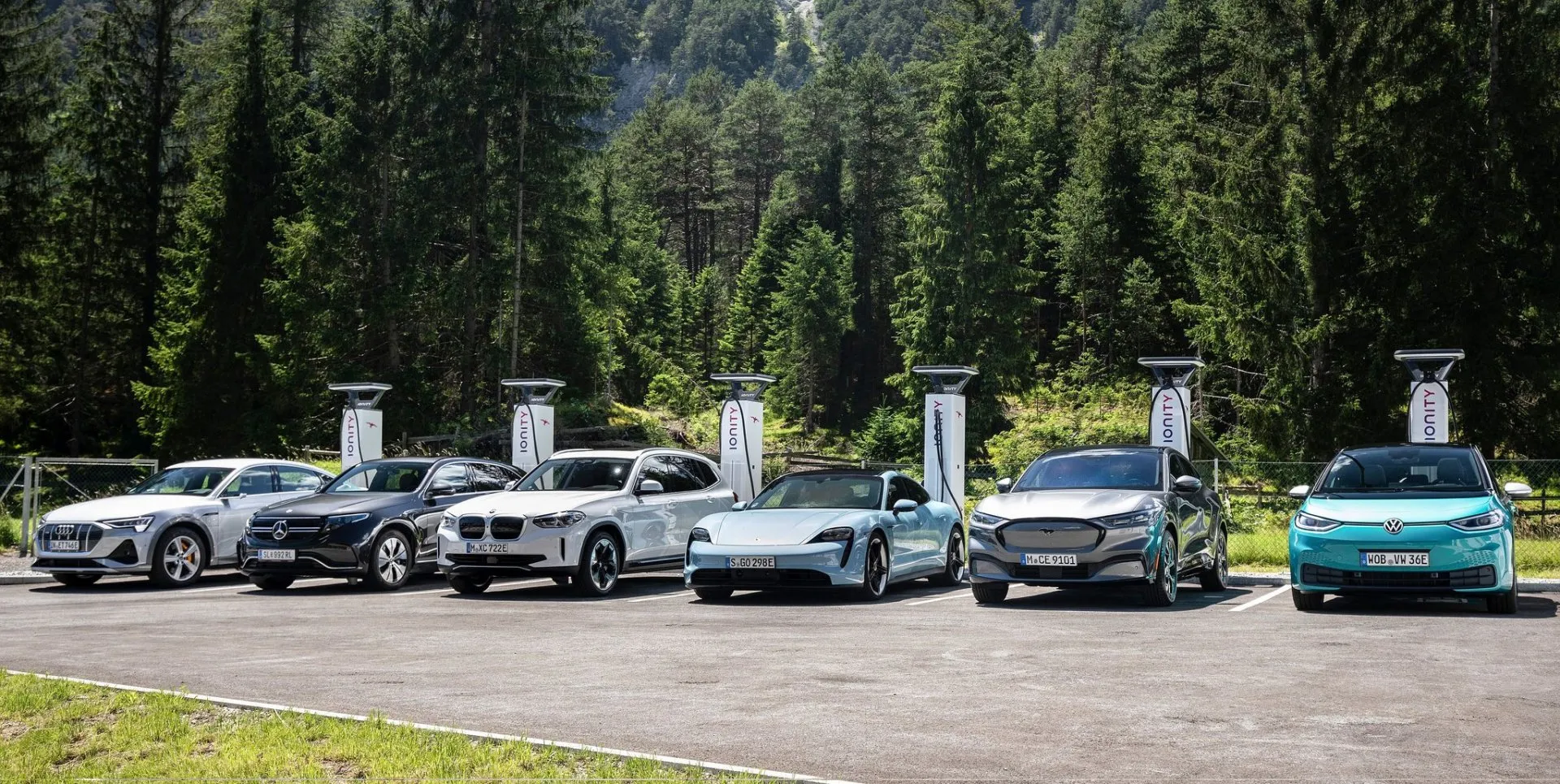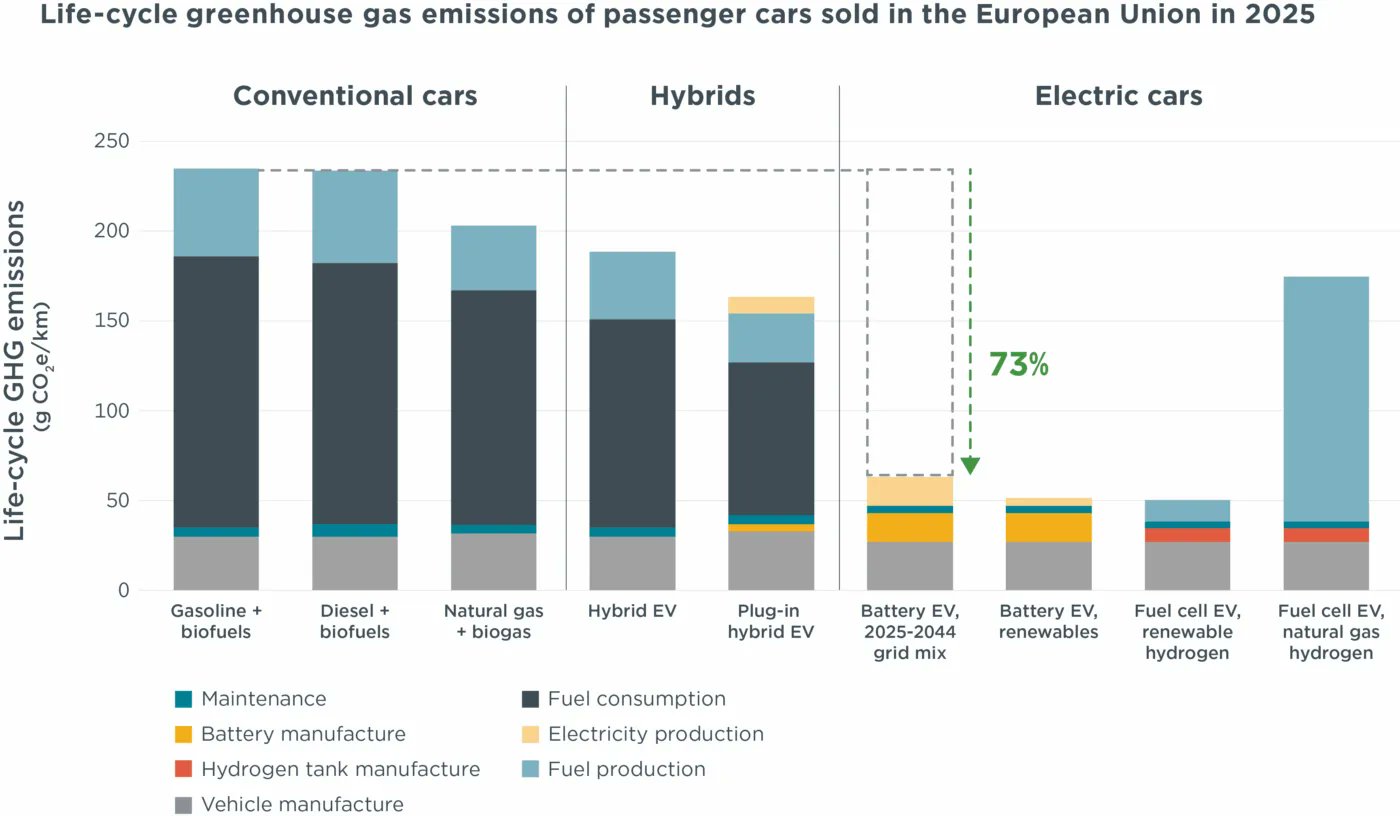Electric vehicles (EVs) have a 40% higher environmental impact than gasoline/diesel vehicles at the factory due to battery production. However, after approximately 17,000 km of use, EVs become environmentally superior.


According to a study by the International Council on Clean Transportation (ICCT), over an average 20-year lifespan, EVs produce 73% fewer emissions than fossil fuel vehicles. For a mid-segment electric passenger car sold in Europe this year, the average greenhouse gas emissions, based on the EU’s electricity production projections for 2025–2044, are calculated at 63 grams of CO₂ per kilometer. In contrast, gasoline vehicles in the same segment emit nearly four times as much, at 235 grams of CO₂ per kilometer.

Compared to ICCT’s 2021 data, EV emissions have decreased by 24% over four years, largely due to the EU’s renewable energy share in electricity production rising from 38% to 56% over the past five years. The study also shows that EVs charged solely with renewable electricity can reduce emissions to as low as 52 grams of CO₂ per kilometer, a 78% reduction compared to internal combustion engine vehicles.
Hybrid and plug-in hybrid vehicles emit 20% and 30% fewer emissions, respectively, than fossil fuel vehicles. The study also covers hydrogen fuel cell vehicles, noting that those using green hydrogen could have 79% lower emissions than internal combustion vehicles. However, since most hydrogen in Europe is produced using fossil fuels, this calculation does not fully align with real-world conditions.